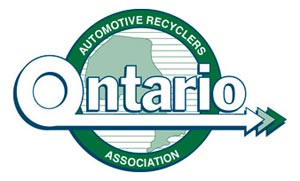On April 1, a federal government department banned asbestos use in renovations and new construction, but it’s still in the brake pads we’re now required to handle. – Steve Fletchern
nnSince new regulations came into effect for Ontario auto recyclers in April, the Ontario Auto Recyclers Association has been hard at work acting as an educational beacon. We’ve pledged to the government that we would take on a lot of the industry communication about the change, as well as making it easier for any interested parties to comply with the new rules. While the regulations as a whole are a huge step forward for the auto recycling industry in Ontario, one of the unintended consequences is the requirement to remove asbestos brake pads from a car before it’s crushed or shredded. Asbestos is a mineral widely used in construction and manufacturing that, when disturbed or broken up, releases fibres that can cause cancer and serious respiratory illnesses if inhaled.nnWhere to start?nDealing with asbestos—and even brake pads—is a brand new thing for recyclers, as we don’t normally remove brake pads or crack open brake drums. There is precious little information available about who is installing these brake pads and what we’re to do with them once they’re removed. There is also no clear labeling on brake pads containing asbestos. As a result, auto recyclers would have to treat every brake pad as though it potentially contains asbestos, which is a huge undertaking.nnAftermarket brake pads are one of the largest categories of asbestos-containing products imported into Canada with some $100 million worth imported between 2005 and 2015. However, there are made-in-Canada products available that are asbestos-free. We’re also finding there has been a national effort to publicize the negative affects of asbestos and a movement towards getting it finally banned in Canada.nnCall to action nWe issued a press release about this concern recently, calling for a ban on the importation of these products because the responsibility to clean up after businesses using these brake pads has fallen on the smaller, independent auto recyclers. This is both unfair and unsafe, and we’ve received a tremendous amount of pickup on that release from major media. The Ontario Ministry of the Environment also fully supports us in calling for a ban. It has been great for auto recyclers to raise awareness of who we are and the fact that this regulation is coming into place, but this is the kind of downside of getting regulation put upon any industry: You don’t always control how far it goes and you have to figure out how to understand it, implement it and ultimately meet your compliance obligations. This burden that’s been put on auto recyclers is one that should also extend to the complete supply chain, including repairers. It has been an educational process to speak with repairers and the installers, who are saying there’s a problem out there.nnCollectively, the industry needs to be aware of it now.n
n
